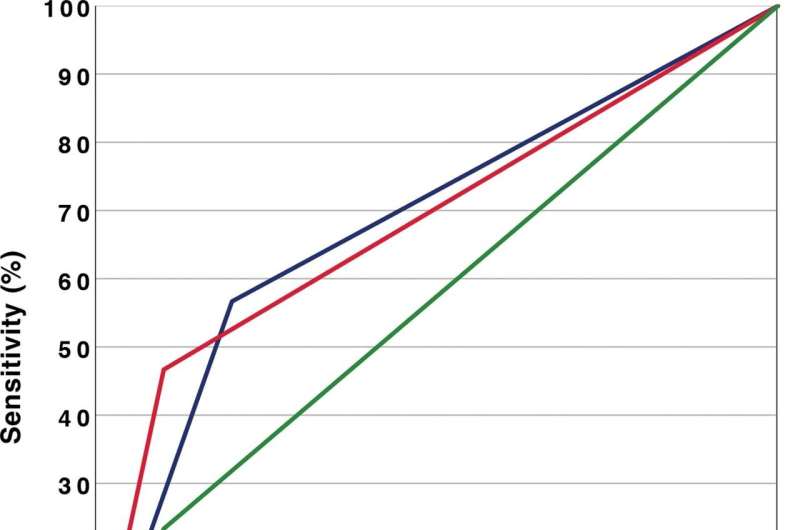This article has been reviewed according to Science X's editorial process and policies. Editors have highlighted the following attributes while ensuring the content's credibility:
fact-checked
peer-reviewed publication
trusted source
proofread
Positive response to Botox injection predicts better results of migraine surgery

Preoperative Botox injections are a useful test for predicting how well patients with chronic migraine will respond to nerve decompression surgery, reports a study in the May issue of Plastic and Reconstructive Surgery.
"Our study supports the value of preoperative Botox injections as a reliable diagnostic tool for identifying patients who will respond to migraine surgery, with a positive predictive value of nearly 90% percent," comments ASPS Member Surgeon Jeffrey E. Janis, MD, of The Ohio State University Wexner Medical Center, Columbus.
Peripheral nerve decompression, or trigger point deactivation surgery, has become an established treatment for chronic migraine headaches and some neuralgias, like occipital neuralgia. Migraine surgery seeks to address nerve compression at trigger sites in the head and neck, which are thought to contribute to headaches.
Injections of botulinum toxin—best known by the brand name Botox—may be performed as a preoperative test to confirm trigger site involvement. If Botox injections prevent or reduce migraine attacks, they support the involvement of that particular trigger site in the patient's headaches. However, few studies have evaluated how well Botox injections predict the response to headache surgery.
Dr. Janis and colleagues reviewed their department's experience in 40 patients undergoing headache surgery. All patients underwent targeted diagnostic Botox injections based on their headache characteristics and previously identified trigger sites. Responses to Botox testing were evaluated as a predictor of improvement after nerve decompression.
Three months after surgery, all patients had improvement on a standard migraine score (the Migraine Headache Index, or MHI), with reductions in a combination of duration, intensity, and/or frequency of migraine attacks. About half of patients (19 of 40) had a positive response to Botox injection, with at least a 50% reduction in MHI.
Better migraine surgery outcomes for patients with positive Botox tests
Patients with successful Botox injections had better outcomes on most measures of the response to headache surgery. Average improvement in MHI score was about 90% after positive responses to Botox testing, compared to 49% in those with negative responses.
Patients with positive responses to Botox had greater reductions in migraine intensity, about 57% versus 26%; and migraine frequency, 78% versus 47%. Migraine duration was also shorter in patients with successful Botox injections, although the difference was not statistically significant.
Overall, surgery was rated successful (at least a 50% reduction in MHI) in 17 of 19 patients with positive results on Botox injection, compared to 13 of 21 patients with negative Botox results. A successful Botox test had a positive predictive value of 89.5%. In other words, about 9 out of 10 patients with a successful diagnostic Botox injection had improvement after migraine surgery.
On the other hand, preoperative Botox injection had a negative predictive value of 38%—"which means that over half of the patients that had an unsuccessful Botox injection will still improve after surgery," Dr. Janis and colleagues explain.
The researchers note that patients with unsuccessful Botox injection may benefit from further tests to assess trigger point involvement. In a prior study, the researchers demonstrated the high predictive value of peripheral nerve blocks in mapping migraine trigger sites.
The authors point out some limitations of their study, which included a relatively small number of patients treated in a single plastic surgery department. Dr. Janis states, "We recommend the routine use of diagnostic Botox injections as well as nerve blocks with the goal of confirming trigger sites and identifying patients who are more likely to benefit from migraine surgery."
More information: Hassan ElHawary et al, The Positive and Negative Predictive Value of Targeted Diagnostic Botox Injection in Nerve Decompression Migraine Surgery, Plastic & Reconstructive Surgery (2023). DOI: 10.1097/PRS.0000000000010806




















